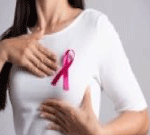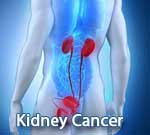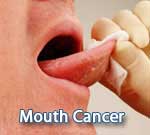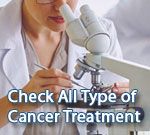Esophageal Cancer
Followup Care:
Nutrition for Cancer PatientsEating well during cancer treatment means getting enough calories and protein to control weight loss and maintain strength. Eating well often helps people with cancer feel better and have more energy.
However, many people with esophageal cancer find it hard to eat well because they have difficulty swallowing. Patients may not feel like eating if they are uncomfortable or tired. Also, the common side effects of treatment, such as poor appetite, nausea, vomiting, dry mouth, or mouth sores, can make eating difficult. Foods may taste different.
After surgery, patients may receive nutrients directly into a vein. (This way of getting nourishment into the body is called an IV.) Some may need a feeding tube (a flexible plastic tube that is passed through the nose to the stomach or through the mouth to the stomach) until they are able to eat on their own.
Patients with esophageal cancer are usually encouraged to eat several small meals and snacks throughout the day, rather than try to eat three large meals. When swallowing is difficult, many patients can still manage soft, bland foods moistened with sauces or gravies. Puddings, ice cream, and soups are nourishing and are usually easy to swallow. It may be helpful to use a blender to process solid foods. The doctor, dietitian, nutritionist, or other health care provider can advise patients about these and other ways to maintain a healthy diet.
The Importance of Follow up Care
Follow up care after treatment for esophageal cancer is important to ensure that any changes in health are found. If the cancer returns or progresses or if a new cancer develops, it can be treated as soon as possible. Checkups may include physical exams, x-rays, or lab tests. Between scheduled appointments, patients should report any health problems to their doctor as soon as they appear.





































